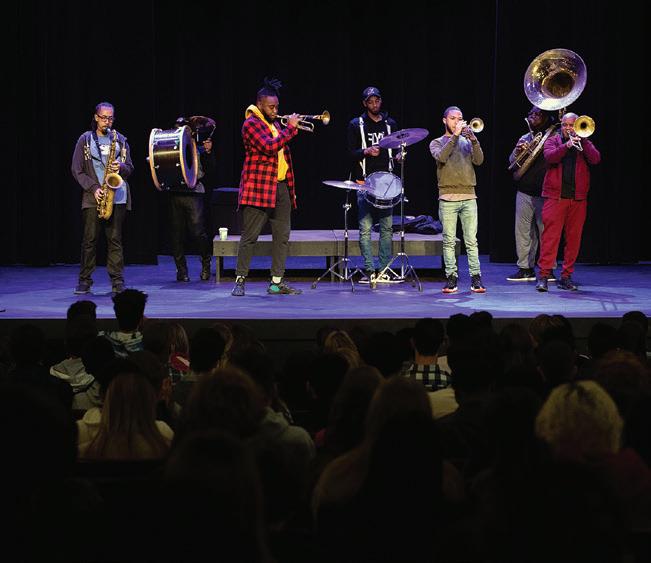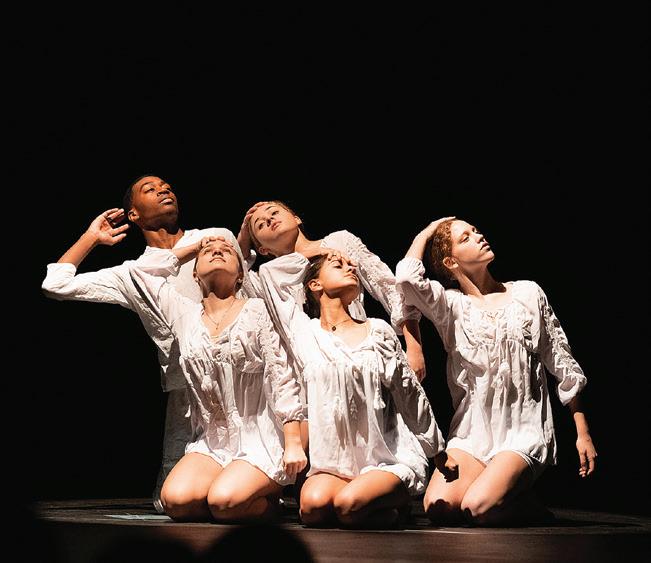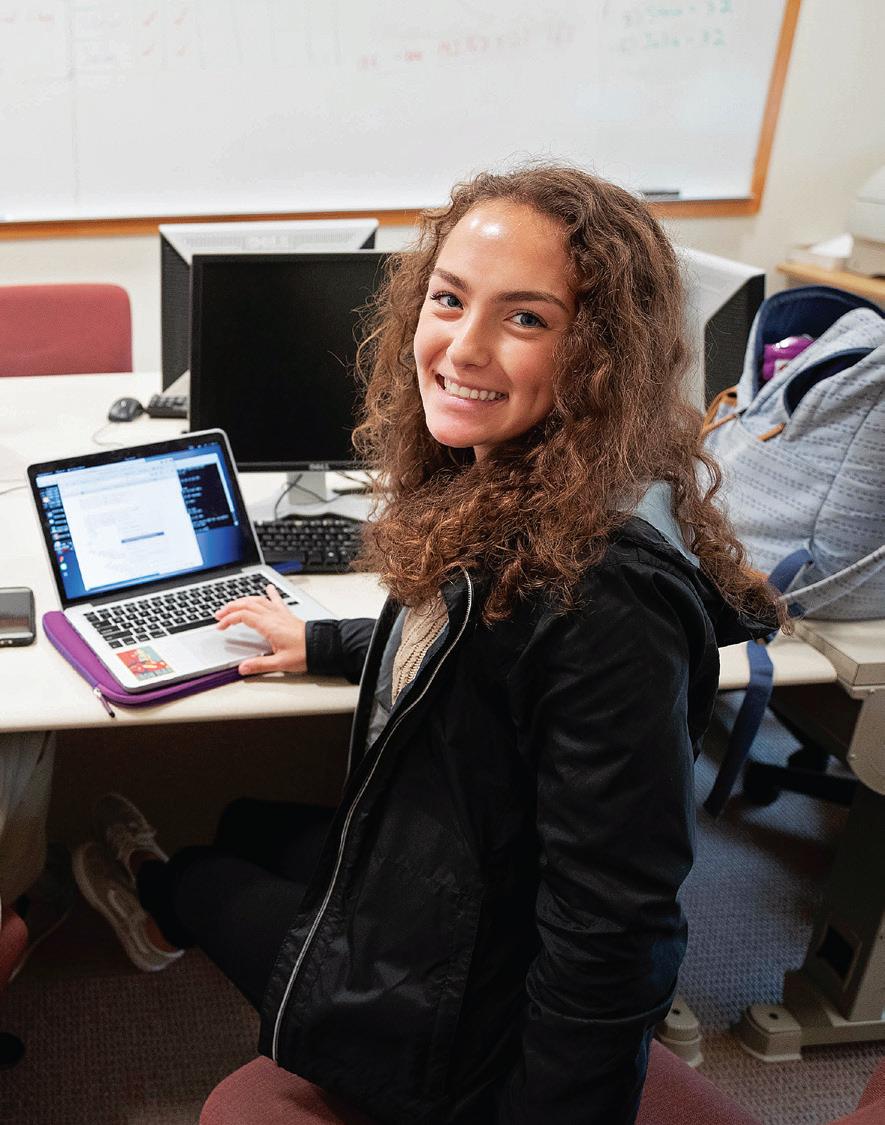
13 minute read
Around the Pond
Around
THE POND
BY DEBRA MEYERS
For more information, visit www.taftschool.org/news
Taft at the Forefront
Young Women Lead the Way in Computer Science
THE COLLEGE BOARD HAS RECOGNIZED Taft as one of the top schools in the nation for young women studying computer science at the advanced placement (AP) level. Only four percent of the 20,000 institutions offering AP computer science courses earned the College Board AP Computer Science Female Diversity Award, which recognizes high female representation in those courses. Fewer than one percent—Taft among them—were recognized for high female representation in AP Computer Science A.
“This is an exciting time for students of all genders to be engaged with our dynamic computer science curriculum,” notes Dean of Academic Affairs and Mathematics Teacher Jennifer Kenerson. “But we are especially proud to be recognized as a school that is on the leading edge of preparing and empowering young women to compete in STEM and computer science fields.”
Announced late in February of this year, schools earning the AP Computer Science Female Diversity Award achieved either 50 percent or higher female representation in AP computer science courses during the 2018–19 school year, or the percentage of female computer science examinees met or exceeded that of the school’s female population. Taft is one of only four schools in Connecticut to earn the award, and stands alone among its peer schools in receiving the honor.
“Taft has effectively created an environment that encourages women to pursue careers in STEM fields,” says Julia Kashimura ’20, whose studies at Taft have included courses in web development, game design using Java, iOS app design, and AP and post-AP computer science. “While those fields have been traditionally dominated by men, Taft has done a great job of providing equal opportunities for students to learn computer science regardless of gender.”
AP Computer Science A students
learn to design and implement computer programs that solve current, real-world problems. The number of young women taking the course—and the exam—has grown steadily, up nearly 60 percent in five years. Recognizing that female students have too often been left behind in computer science studies and careers, the College Board created the Female Diversity Award to honor schools actively engaging more female students in their AP computer science classes and for the work they are doing to close the gender gap in computer science and STEM fields.
“The Taft School is empowering young women to see themselves as creators, innovators, and problem-solvers,” says Stefanie Sanford, College Board global policy chief. “We hope to see even more high schools inspire female students to harness the potential of an AP computer science education.”
Providing female students with access to computer science courses is necessary to ensuring gender parity in high-paying technology jobs and to drive innovation, creativity, and competition. A 2014 study conducted by Google found that women are more likely to pursue computer science if they are given the opportunity to explore it in high school. Taft senior Cierra Oullette took full advantage of that opportunity for exploration throughout her Taft career. Her computer science studies at Taft included Honors C Programming for Hardware and Embedded Systems, Honors Mathematics for Computer Science and Computer Engineering, Post-AP Computer Science, AP Computer Science A, and Computer Graphics & 3D Design.
“I can definitely say that Taft’s computer science course offerings have shaped my career path,” says Cierra. “I
came into high school with an immense passion for computer science, but I was unsure of the direction I wanted to take with my future work. Taft’s continuously expanding computer science course offerings allow all Taft students—including a large group of passionate young women—to be a part of the fastest-growing and most profitable career fields.” j

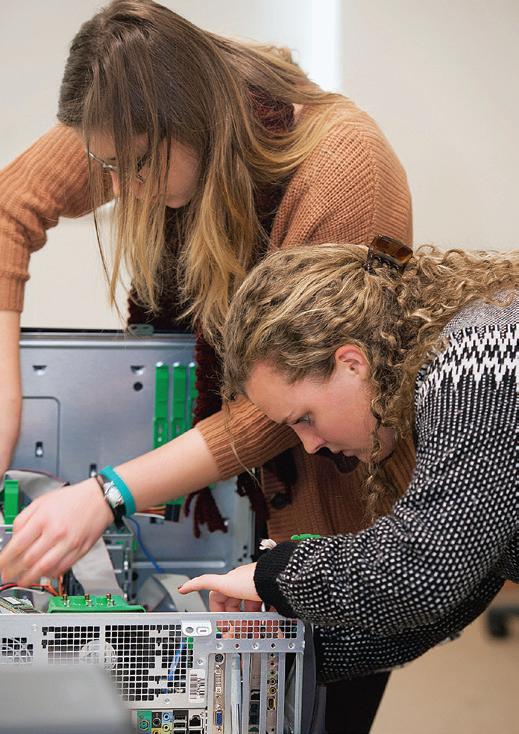
Of Trembling Winter, The Fairest Flowers O’ Th’ Season






FROM THE DARKEST DEPTHS OF winter spring fair flowers of joy and celebration each year, when the classrooms, stages, hallways, and common spaces at Taft begin to resemble London’s Globe Theatre. Taft’s winter exploration and reimagining of Shakespeare’s finest works is a tradition that brings energy and enthusiasm to our school, touching every student in our community. One of the hallmarks of Taft’s Shakespearean winter is the lower mid Macbeth soliloquy recitations, which begin in individual classrooms and culminate in a night of great fun and great spirit with the classroom finalists facing off in a full-grade gathering. It is a beloved Taft tradition. It is also, he always says, one of Headmaster Willy MacMullen’s favorite nights of the year. This year, there were 11 finalists competing for the top prize. The distinguished panel of judges—English Teachers Zana Previti and Caitlin Hincker and mids Jin Min, Leo Kaplan, and Tiger Peng—had their work cut out for them, as all of the competitors delivered fun and impassioned performances. In the end, they rewarded Claire Roberts and her “Yet here’s a spot” soliloquy with the night’s top honors. Louisa Zhang (“The Raven himself is hoarse…”) and Harry Yuan (“Tomorrow and tomorrow and tomorrow…”) were the second and third place finishers, respectively. Finalists Haley Sharpe, Ronald Ceesay, Kaitlin Ip, Jack Johnson, Ryan Timberlake, Ashley Wright, David Ma, and Ben Osset rounded out the competition. You can watch all of the performances at bit.ly/20LMMac. j
Left: Third-place fi nisher Harry Yuan recites the “Tomorrow and tomorrow and tomorrow” passage, spoken in the work by Macbeth himself.
Magic! Revenge! Power!
The magic and intrigue that are Shakespeare’s The Tempest filled the Black Box during the winter theater spectacle.
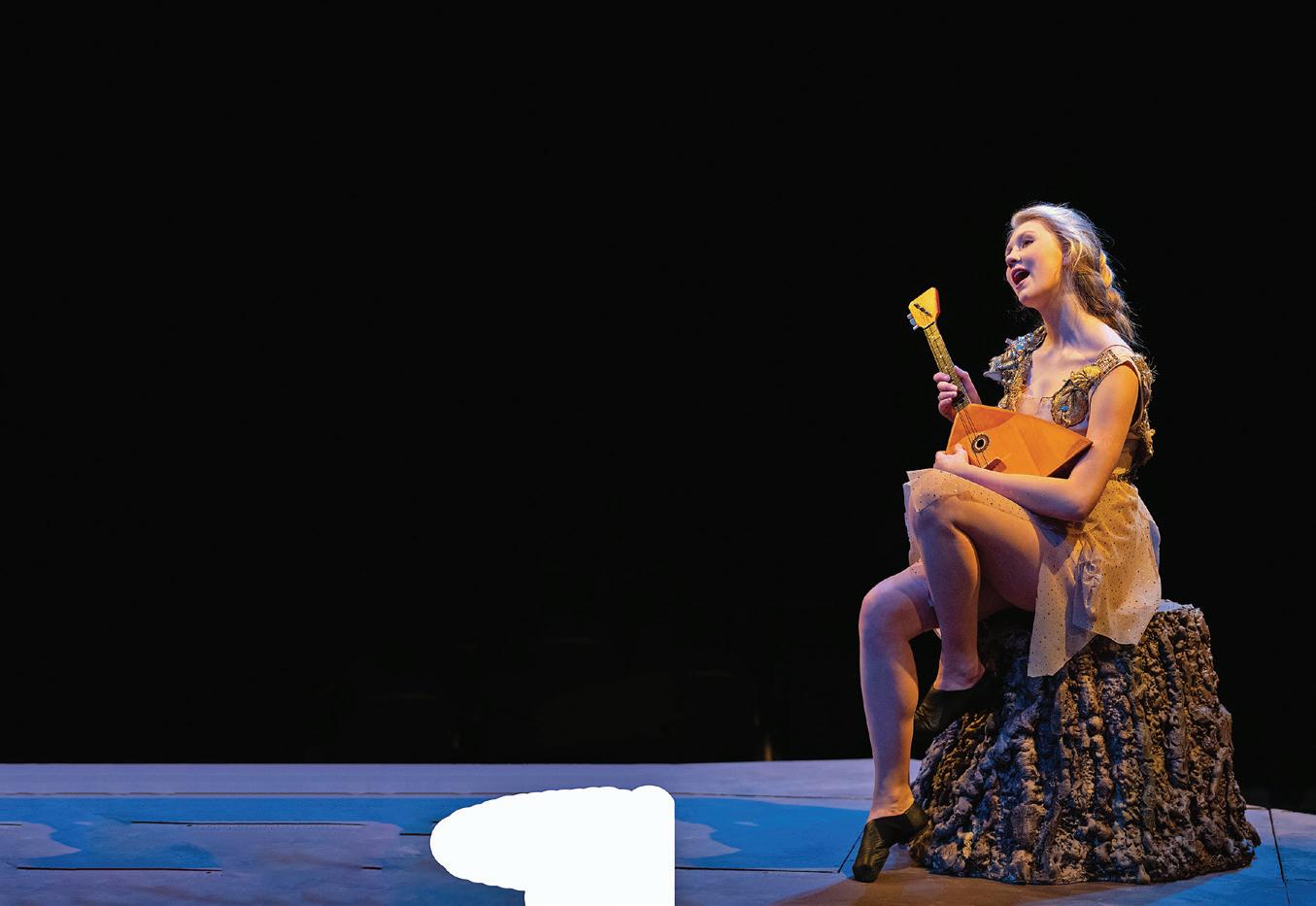


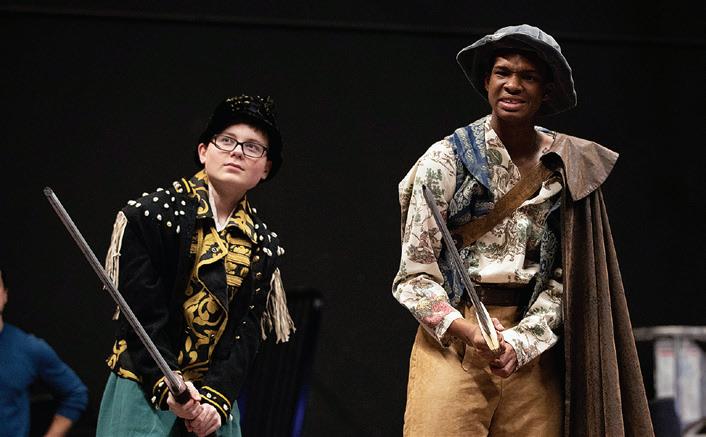
Tafties Stand Out at Yale Model UN
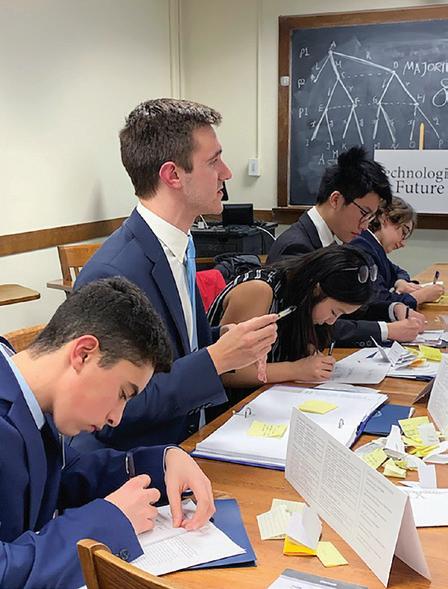
STUDENTS IN MEGAN VALENTI’S Honors Model United Nations made their mark during the 46th session of the Yale Model United Nations Conference in January.
Each year, nearly 2,000 students from 80 schools and 40 countries gather on the Yale University campus to explore a wide range of contemporary global issues, while positing and debating actionable solutions to social, economic, political, humanitarian, cultural, environmental, and technological problems. This year, Taft students Nicholas Baird ’20, Alice Lander ’21, and Kunchok Palmo ’20 were all recognized by Yale for their exceptional committee work.
“I can think of no better way for our students to fully realize the vision of Taft’s Portrait of a Graduate than through their work in Model UN,” says Valenti. “The opportunity to attend a conference such as this, with students from all over the world, and in which they are pushed to think and debate critically, consider varying perspectives, and work to find solutions effectively exemplifies what we want students to take away from a Taft education.”
Taft’s yearlong Honors Model United Nations course explores the basic workings of the United Nations and its diplomatic role in the global community. Students research, discuss, debate, and unpack a range of issues—from human rights and global warming to the complexities of war, peace, and economic disparity. They bring the knowledge and skills developed in the Taft classroom to a number of student-led Model UN conferences each year, including the four-day event at Yale, the Harvard Model United Nations Conference, and the Cornell Model UN Conference. j
Left: Senior Nicholas Baird was honored for his committee work as a delegate during the 46th session of Yale’s Model United Nations Conference in January.
Non ut Sibi: For the Children
FOR MORE THAN 10 YEARS, Taft’s Red Rhino Fund has worked to create positive change for children in the Greater Waterbury community. The fund’s board members are charged with learning about not-for-profit trusteeship, growing the fund’s endowment through new and innovative fundraising initiatives, creating marketing strategies, and awarding grants to community organizations. This year they awarded nearly $10,000 in grant money to six area organizations: Reach Out and Read, United Way of Greater Waterbury, Save Girls on F.Y.R.E., Inc., Greater Waterbury YMCA, Police Activity League of Waterbury, and Waterbury Youth Services. Red Rhino Fund Treasurer Diky Izmirlian ’20 presented the Reach Out and Read organization with a $2,000 grant to support their efforts to build a foundation for success by incorporating books into pediatric care and encouraging families to read aloud together. The organization provides new, developmentally appropriate books and early literacy guidance during regular pediatric checkups to 6,500 children and families in Greater Waterbury.
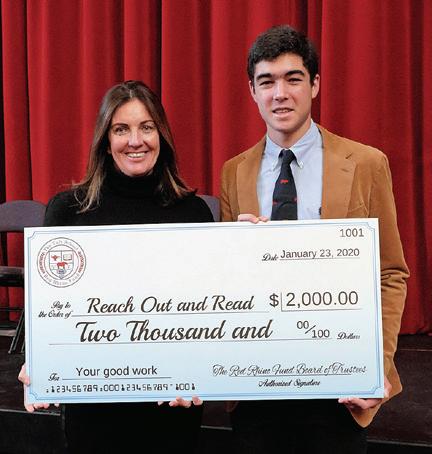
Team Female Coup d’État, from left, upper mids Coco Zhang, Anna Serbina, Felicia Wang, and Linh Vu, with coach, mentor, and Mathematics Teacher Joseph Zipoli ’84.
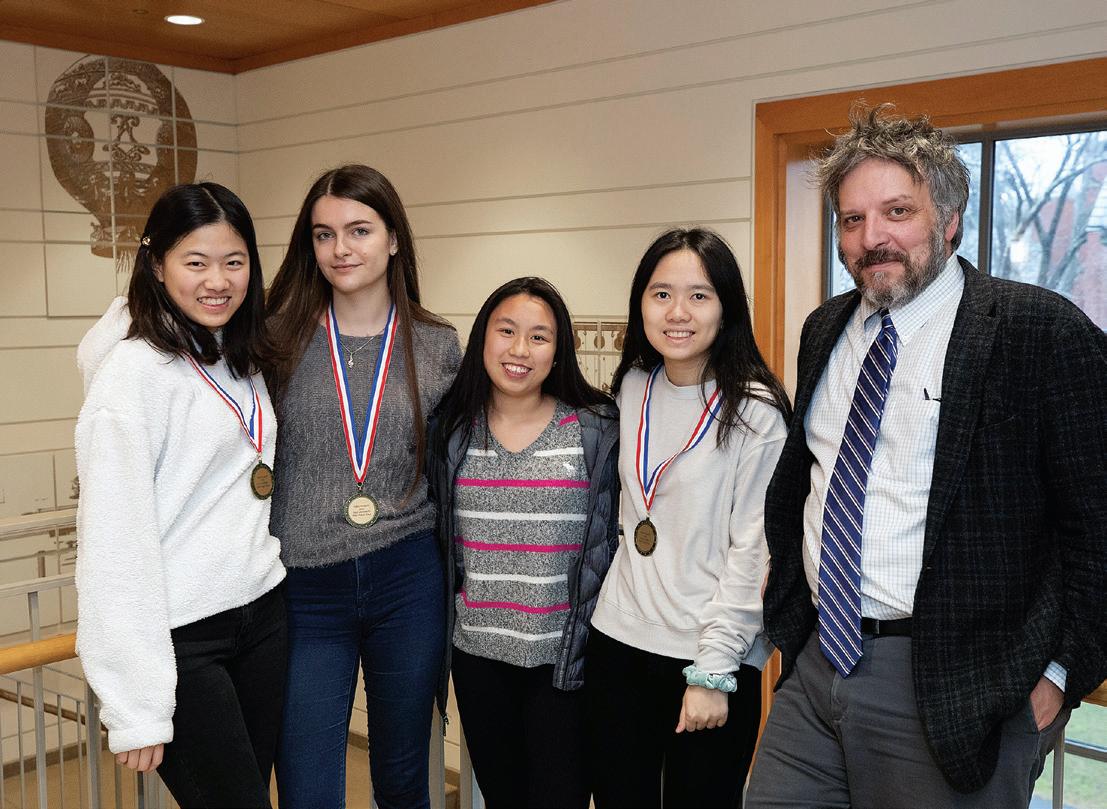
Girls in Math at Yale: A Rhino Coup d’État
FOUR YOUNG WOMEN FROM TAFT traveled to Yale University in February to compete in the third annual Girls in Math at Yale competition. Team Taft arrived as the reigning champions and left with their title intact: For the second consecutive year, Taft took home top honors at the event. Upper mids Linh Vu, Anna Serbina, Felicia Wang, and Coco Zhang dominated the team portion of the competition. “The group chose the name ‘Female Coup d’État,’” said Mathematics Teacher and Mathematics Team Coach Joseph Zipoli ’84. “And in the words of the organizers, they ‘toppled the competition.’” Conceptualized by the Math Majors of America Tournament for High Schools, Girls in Math at Yale was introduced in the fall of 2018 with the goal of cultivating “a love for math and the sciences in a younger generation and celebrating the diversity that is already present in these fields at the university level.” The inaugural event drew 50 students. Zipoli notes that the “steadily growing” competition now draws competitors from public and private high schools across New England. The 2020 program featured both team and individual rounds of competition. It also included time for competitors to explore the university and hear members of the Yale community share their thoughts on opportunities for women in STEM fields. “In addition to the mathematics competition, we had a great day in the school of architecture, hearing from Yale students and professors, and even attending a concert in one of the galleries,” says Zipoli. “In all, it was a great day for our students.” j
—Martha Graham
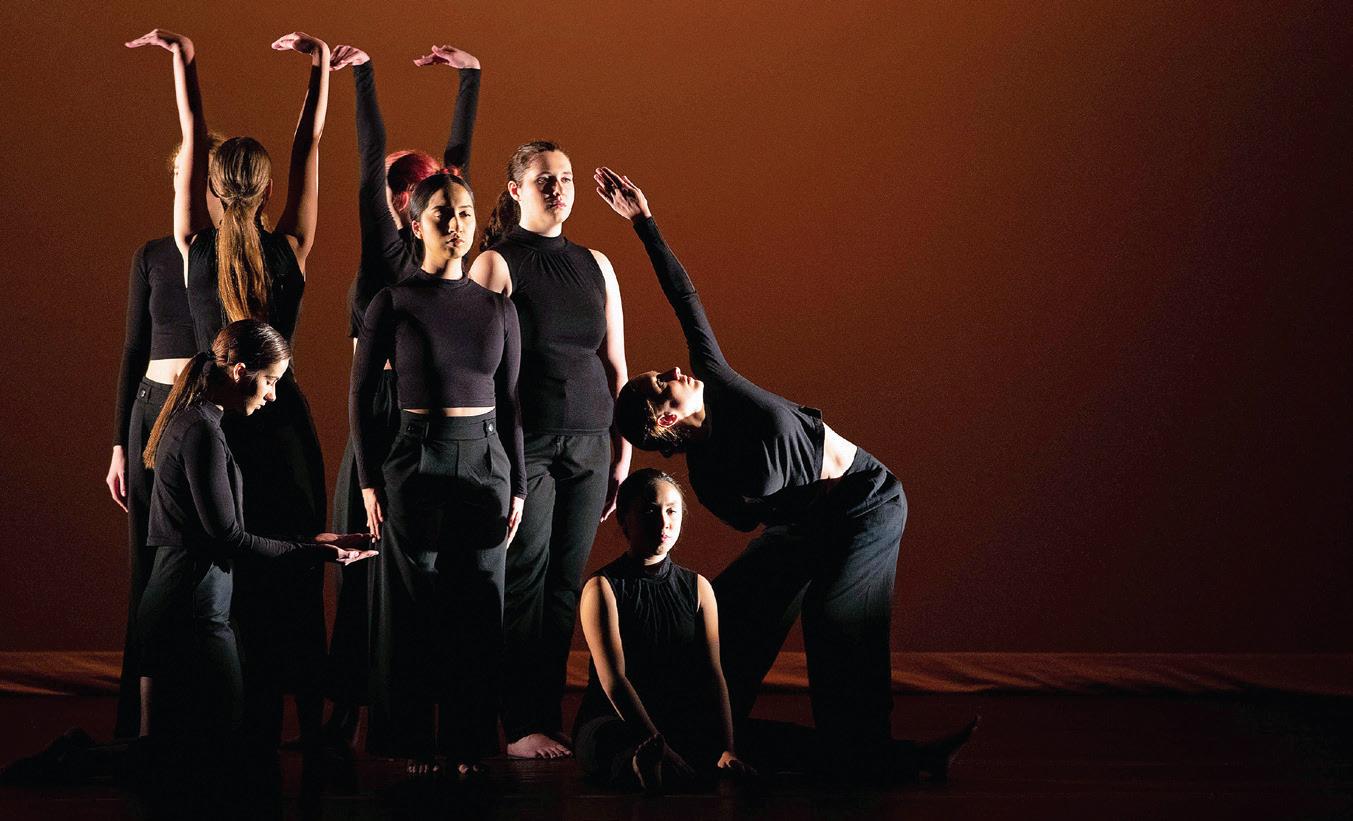



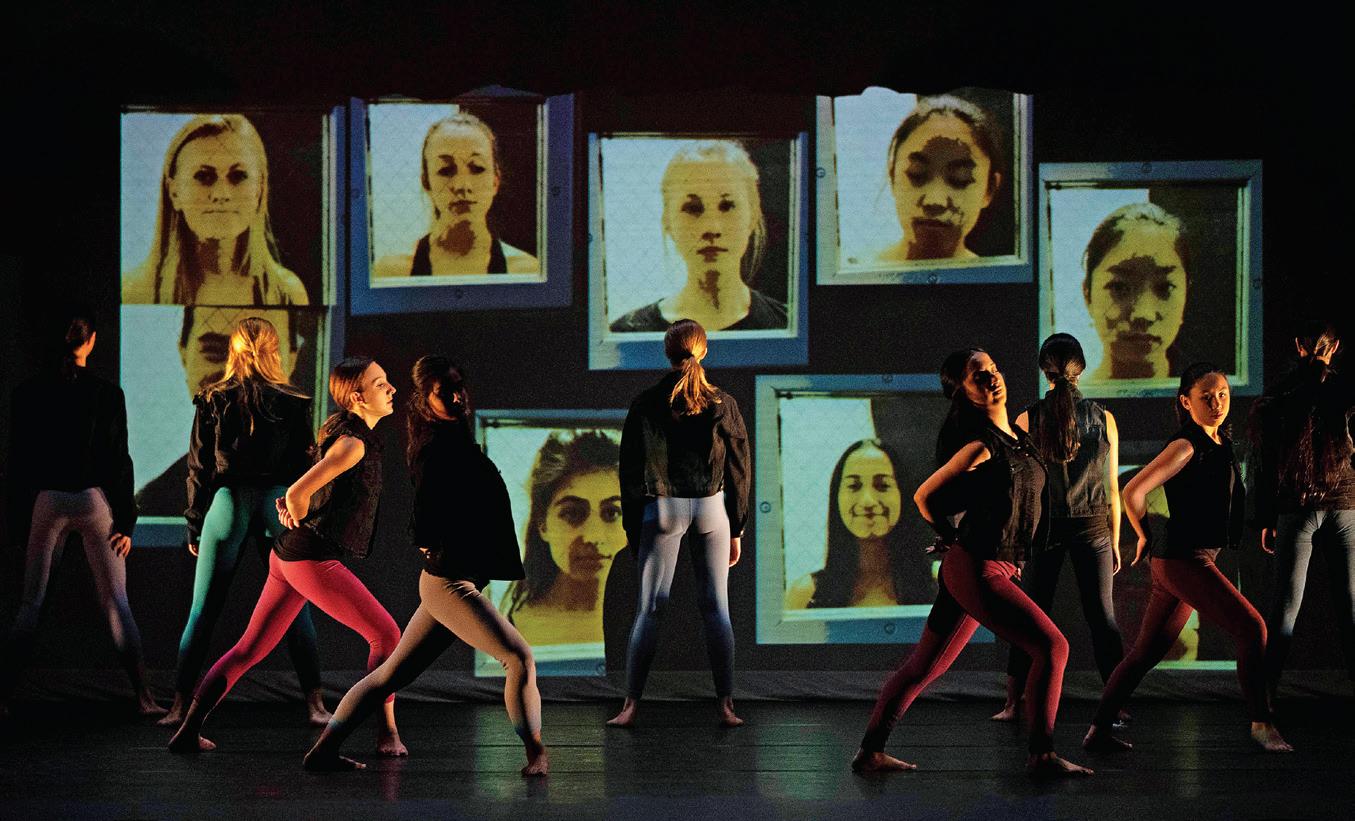
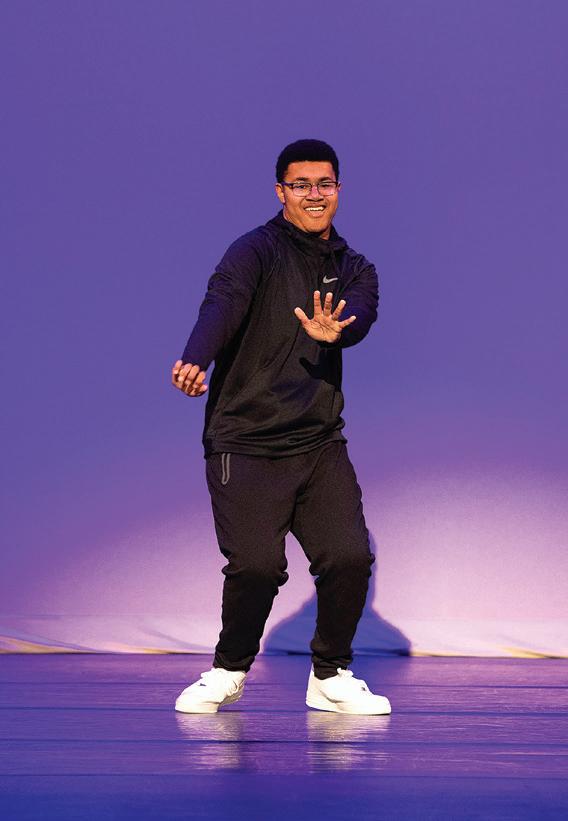
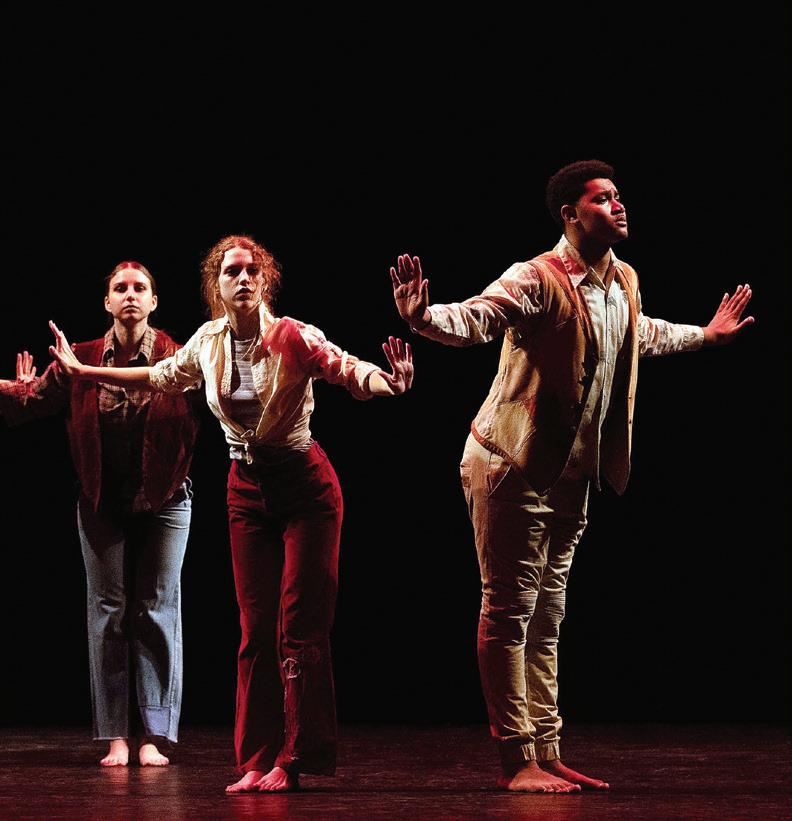
THE TAFT COMMUNITY PAUSED IN FEBRUARY TO EXPLORE some of the most pressing issues facing our planet: sustainability, climate change, renewable energy, geo-environmental politics, and environmental justice, to name a few. Organized by Taft’s EcoMons and designed, notes Science Teacher Alison Frye, “to bring a deeper level of understanding to our community,” Sustainable Action Day included films, classroom discussions and presentations, hands-on workshops, sustainable food choices, informational sessions with outside speakers, and more, including this session introducing UConn’s Nature Ambassador Internship opportunity at the University of Connecticut.
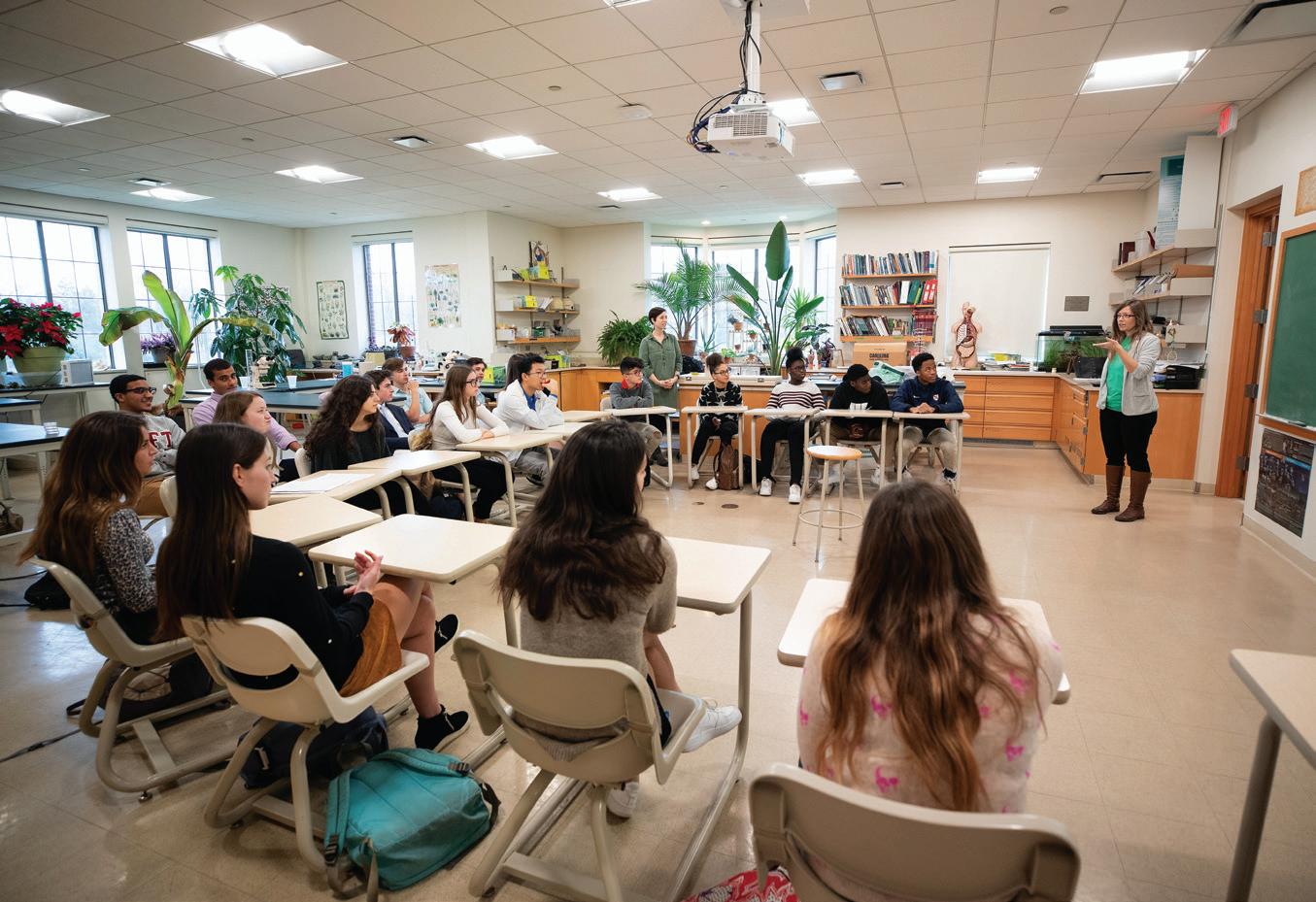
DR. VANESSA BROWN, an administrator in the Emergency Medical Department at Waterbury Hospital, spent time at Taft sharing details of her experiences as a student, first at Choate and Yale, and later in both medical and law schools. Her visit was hosted by Mosaic, Taft’s Black/LatinX female affinity group.
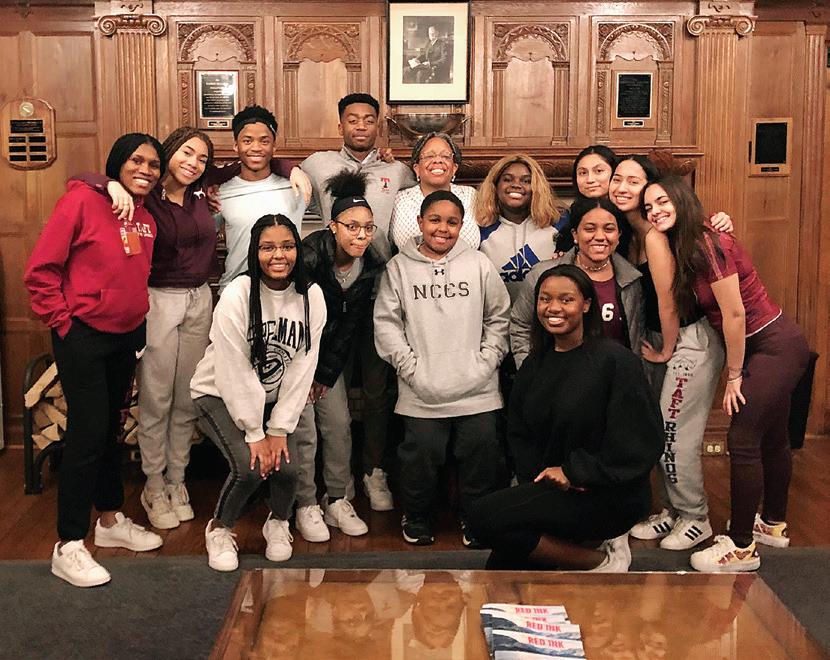
NORTON A. SCHWARTZ is a retired United States Air Force General who served as the 19th Chief of Staff of the Air Force from 2008 until his retirement in 2012. As chief of staff, he was the senior uniformed Air Force officer responsible for supplying, training, and organizing nearly 700,000 active-duty Air Force, Air Force Reserve, Air National Guard, and civilian forces serving in the United States and overseas. As a member of the Joint Chiefs of Staff, Schwartz served as military adviser to the secretary of defense, National Security Council, and the president. He is currently the president and CEO of the Institute for Defense Analyses, and this winter he was the Rear Admiral Raymond F. DuBois Fellowship in International Affairs speaker at Taft.
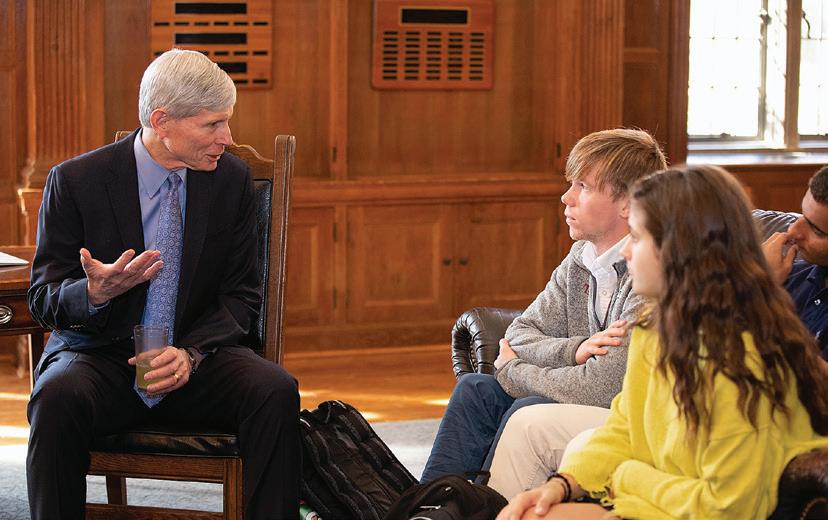
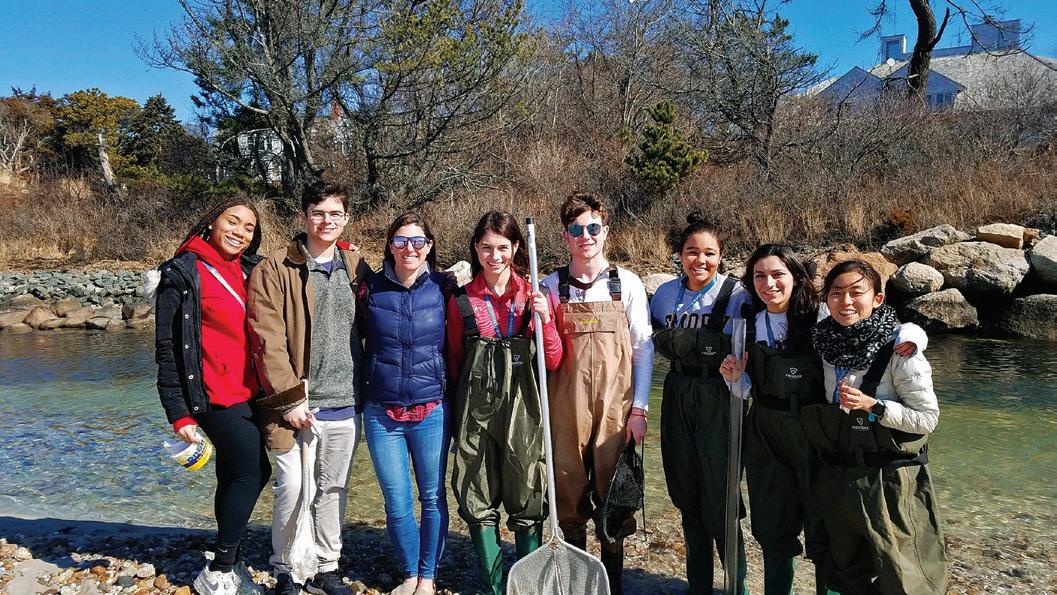
STUDENTS IN CARLY BORKEN’S AQUATIC SCIENCES COURSE TRAVELED TO WOODS HOLE, MASSACHUSETTS— home of the renowned Woods Hole Oceanographic Institute and the University of Chicago’s Marine Biological Laboratory—for three days of hands-on learning. The course covers the basic properties of freshwater and seawater, the general categories of organisms and their environmental and ecological relationships, and the impacts of humans on the world’s aquatic systems.
Honoring Dr. Martin Luther King, Jr.
Simplicity of Message, Complexity in Application
TAFT’S 2020 WEEKLONG CELEBRATION of the life, work, and vision of Dr. Martin Luther King, Jr. featured a series of workshops, performances, and speakers built around themes at the heart of The 1619 Project, published last year in The New York Times Magazine to mark the 400th anniversary of the beginning of American slavery. Through a series of stories around topics as diverse as capitalism, health care, American music, the wealth gap, mass incarceration, and hope (to name a few), the Project reframes our country’s history by placing the consequences of slavery and the contributions of black Americans at the center of our national narrative. The goal of all of the week’s events? Education, inspiration, and a call to action. j
“We are so familiar with [Dr. King’s] words that we glance over them with ease and assume we already know what they mean. Yet there is so much more to learn, to grapple with, to understand their continued relevance, and at once to behold both the simplicity of his message and its complexity in its application.”


—Taft MLK Day Unity Breakfast Speaker and Naugatuck Valley Community College Professor Kathy Taylor, J.D.
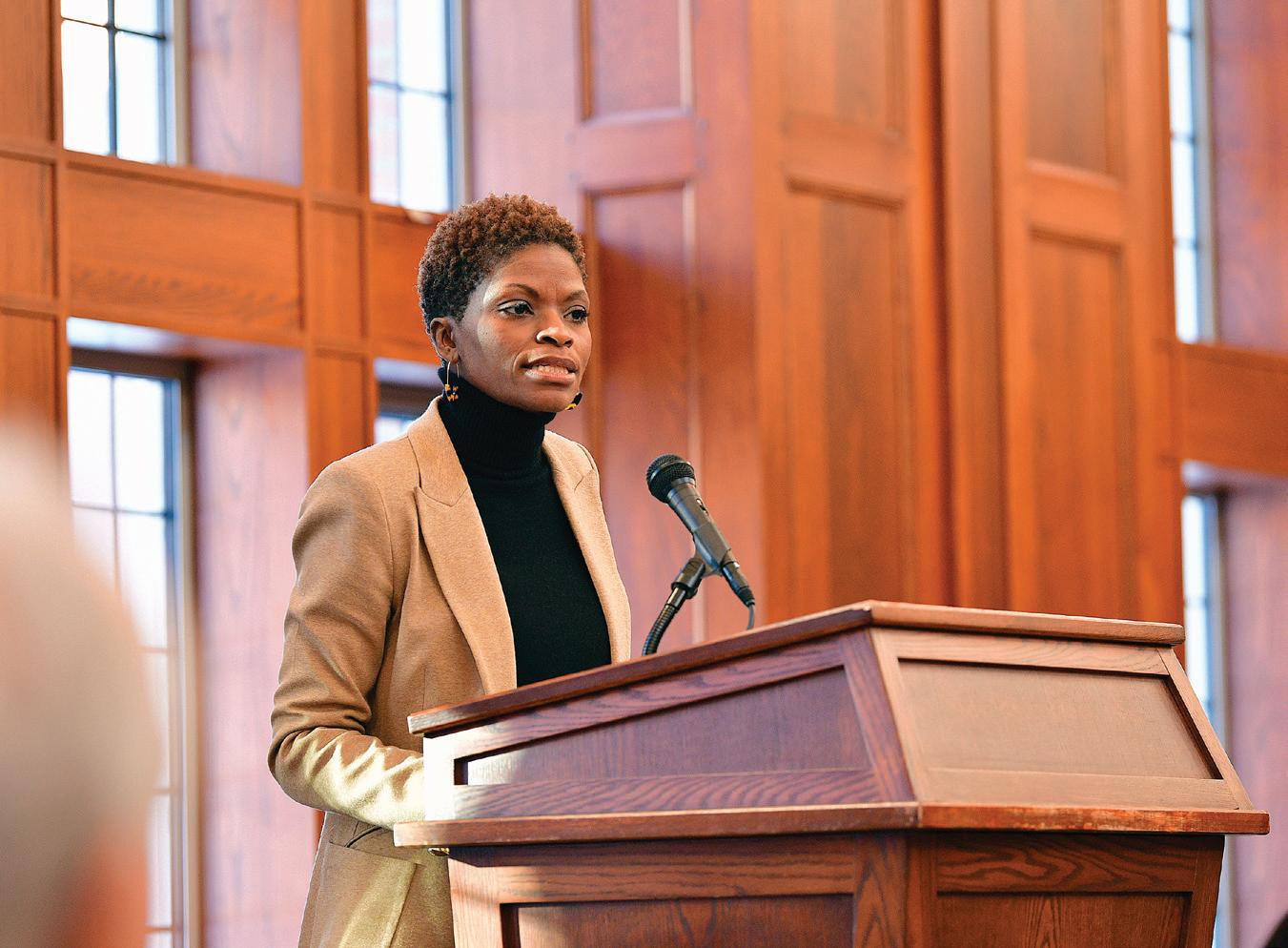

“What is the inspiration that happened for you on MLK Day, how do you move that forward? Begin by asking, ‘What can I do to make things better?’ Then fi nd what compels you. There’s got to be a way for you to just make things better. It doesn’t always have to be a grand gesture; simply fi nd and create your everyday activism.”
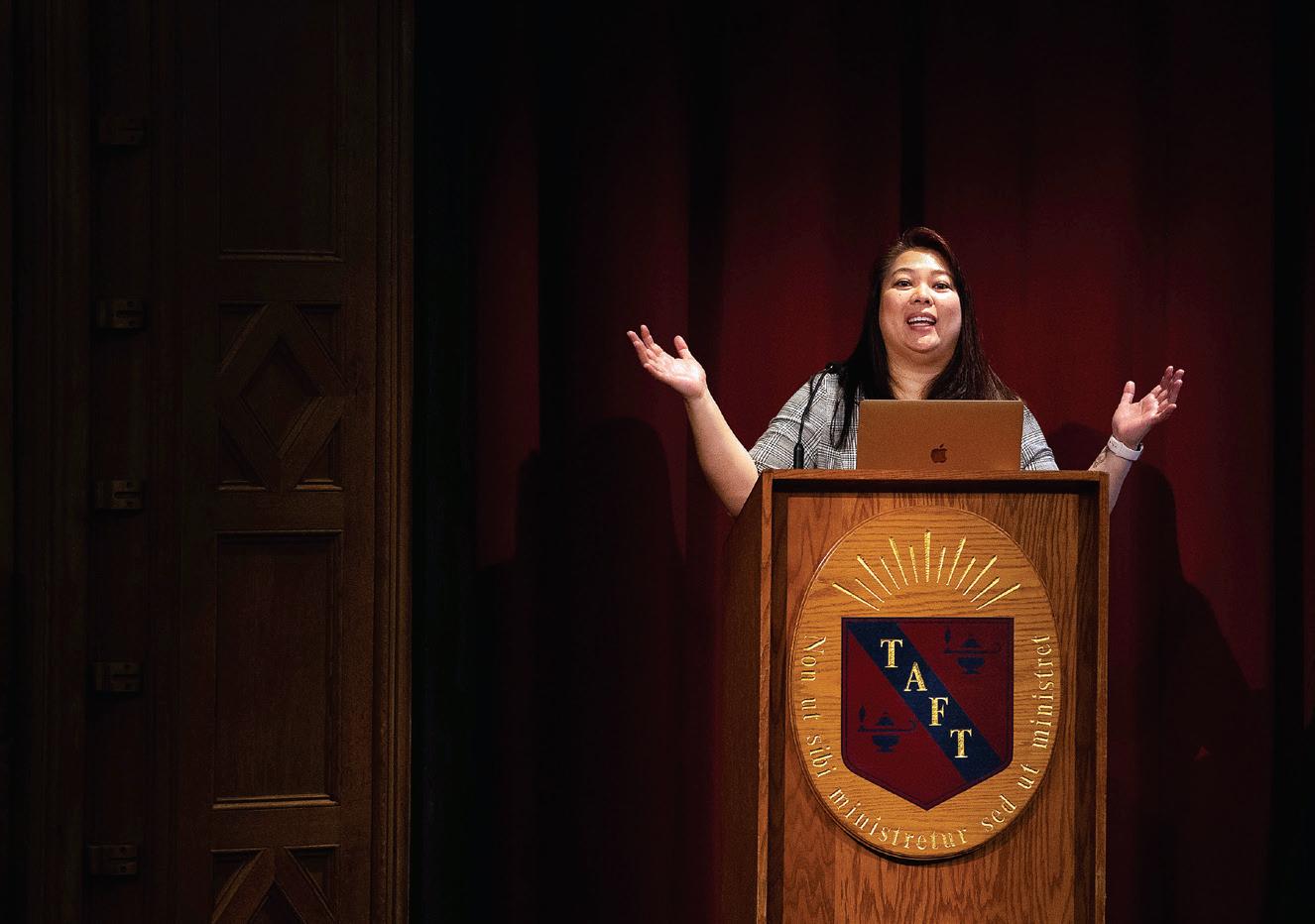
—MLK Week Morning Meeting Speaker Dr. Liza Talusan



The Grammy-winning Rebirth Brass Band traces and preserves the roots of traditional brass bands. Exploring the themes of MLK Day through movement.
